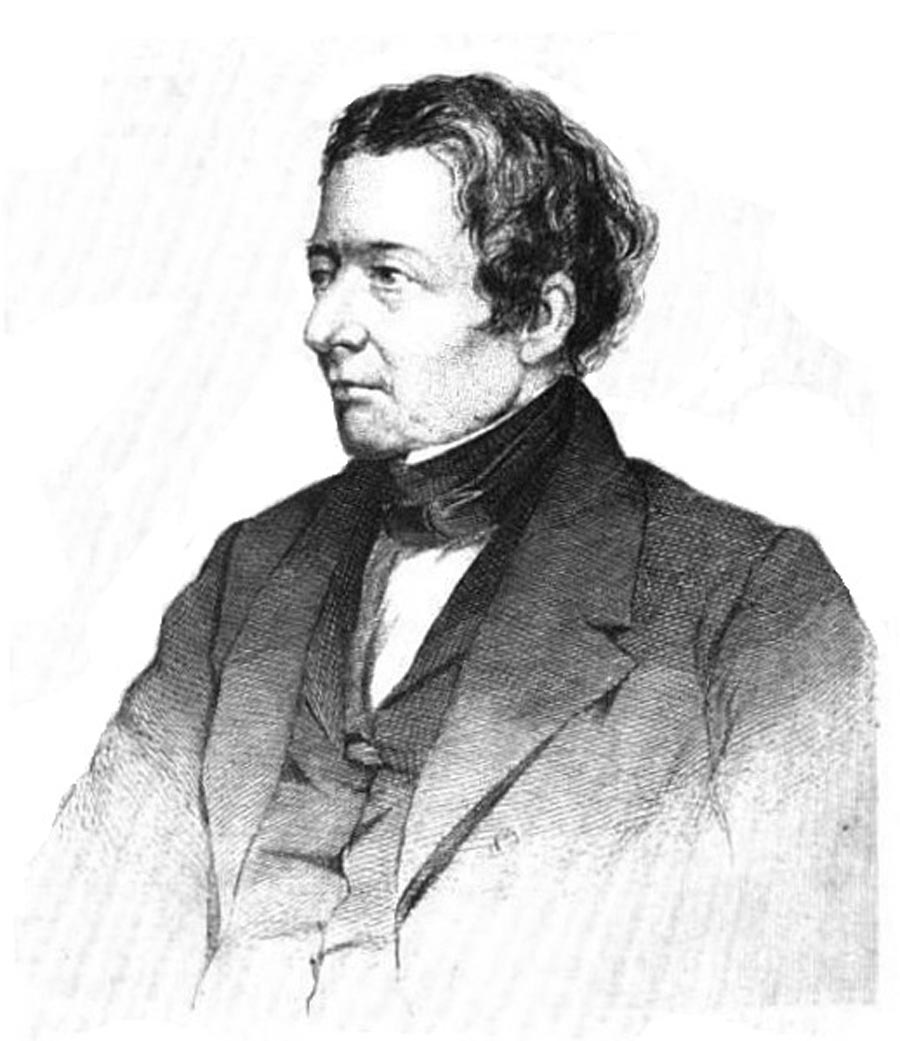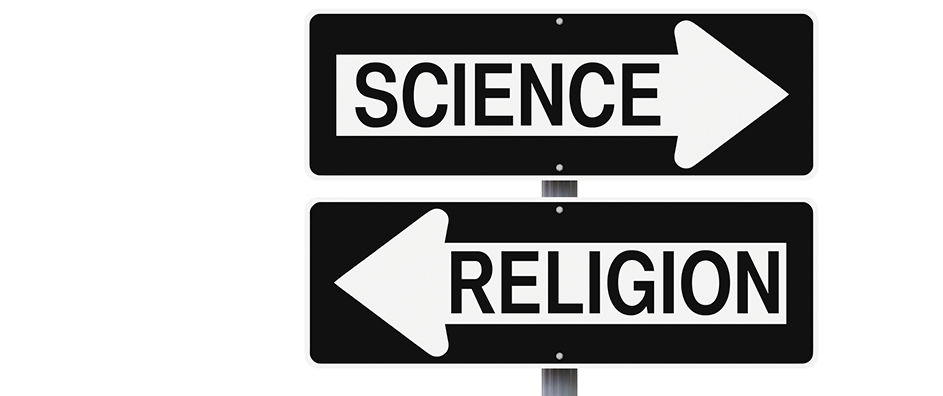The views expressed in our content reflect individual perspectives and do not represent the authoritative views of the Baha'i Faith.
Science and religion: diametrically opposed, right? No, not really.
A physicist friend, who is also a Baha’i, recently recommended a book to me that dealt with the myths that have grown up around the relationship between science and religion. Entitled Galileo Goes to Jail: and Other Myths about Science and Religion, the book is a collection of essays edited by Dr. Ronald Numbers, and written by a diverse array of authors that included atheists, agnostics and believers from several different faith traditions. The book intends, as stated in the introduction, to confront: “The greatest myth in the history of science and religion… that they have been in a state of constant conflict.”
Presently, what Dr. Numbers calls a myth is considered by many to be one of those things that everyone recognizes as a fact. But a stroll through the pages of history support the contention that the idea is of more recent vintage. In 1874 American polemicist John William Draper wrote that:
The antagonism we thus witness between Religion and Science is the continuation of a struggle that commenced when Christianity began to attain political power… – The History of the Conflict Between Science and Religion.
The polarities this “battle” creates have vital importance for Baha’is. The Baha’i Faith—born three decades before Draper made the above claim—has as a primary principle the harmony of science and religion. The scriptures of the Baha’i Faith state clearly that if science and religion seem to disagree, then we have misunderstood what one or the other (or perhaps both) have to tell us.
As Baha’u’llah’s eldest son and authorized interpreter, Abdu’l-Baha expressed it:
The third principle or teaching of Baha’u’llah is the oneness of religion and science. Any religious belief which is not conformable with scientific proof and investigation is superstition, for true science is reason and reality, and religion is essentially reality and pure reason; therefore, the two must correspond. Religious teaching which is at variance with science and reason is human invention and imagination unworthy of acceptance, for the antithesis and opposite of knowledge is superstition born of the ignorance of man. If we say religion is opposed to science, we lack knowledge of either true science or true religion, for both are founded upon the premises and conclusions of reason, and both must bear its test. – The Promulgation of Universal Peace, pp. 63-64.
But what of Draper’s contention? Has science been at war with faith since the dawn of Christianity’s political power? That’s quite a claim, considering that this occurred in the fourth century at a time when science as a distinct discipline didn’t yet exist. Numbers notes that the discussion of the relationship between science and religion took off in the early 19th century when the word “science” came into vogue to replace the terms “natural philosophy” and “natural history,” which had been in use.
Up until this point, while there had been some dialogue around the subject of the roles of faith and reason, no one pitted an entity called Religion against a second entity called Science.

Thomas Dick
The approach in these early dialogues was exploratory. The first English-language book that linked science and religion was Thomas Dick’s 1823 volume The Christian Philosopher (aka The Connection of Science and Philosophy with Religion). By the time Baha’u’llah was establishing his faith in Persia, with its emphasis on the harmony of science and faith, there were chairs and programs in several American colleges and seminaries “demonstrating the harmony of science and revealed religion” as Ronald Numbers puts it.
It wasn’t uncommon at this point for men of science to engage in discourse on scripture (the Bible, in the West) and for seminarians to consider scientific themes—after all, nature was God’s creation and thus, a fitting subject for private study and public discourse. Science was, to the believer, a way of rationally knowing God and appreciating His activities in the universe.
The involvement of religious believers in the work of science goes back millennia. Despite Draper’s assertion that Christianity has been embattled with science since early days, we have very religious men to thank for many of the discoveries and theories that lie at the heart of modern science—men such as William of Occam, Copernicus, Galileo, Newton, LeMaitre, LePlace to name but a handful. The accomplished Muslim scholars and scientists—Ibn-Sina, Ibn-Rushd, Ibn-Furnas, Rhazes, and many others—contributed an enormous amount, as well. How many devoted Hindus, Buddhists, Jews, Baha’is and other believers have been—and are yet—immersed in the pursuit of science?
Do religious people exist who fear, distrust (even despise) and generally pan science, or who see it as being in conflict with their beliefs? Certainly. Just as non-religious people exist who fear, distrust (even despise) and generally pan religion, and who see it as being in conflict with their beliefs.
But here’s an interesting point that has come out of recent surveys and polls about religion and science: while there is an unhealthy percentage of people worldwide who do not accept any theory of evolution as fact, not all of them are religious or reject evolution for religious reasons. Food for thought.
In the essays in this BahaiTeachings.org series, I’d like to explore the various myths taken on by Dr. Numbers’ collection of anthologists, and a few others I welcome anyone who wants to come along on the journey. Let’s explore the real relationship of religion and science, and see if we can figure it out.
Next: The Rise of Christianity and the Demise of Science
You May Also Like
Comments

















„Science is not only compatible with spirituality; it is a profound source of spirituality. When we recognize our place in an immensity of light‐years and in the passage of ages, when we grasp the intricacy, beauty, and subtlety of life, then that soaring feeling, ...that sense of elation and humility combined, is surely spiritual. So are our emotions in the presence of great art or music or literature, or acts of exemplary selfless courage such as those of Mohandas Gandhi or Martin Luther King, Jr. The notion that science and spirituality are somehow mutually exclusive does a disservice to both.“
— Carl Sagan
„ With the loud protests of a small number of religious groups over teaching scientific concepts like evolution and the Big Bang in public schools, and the equally loud proclamations of a few scientists with personal, anti-religious philosophies, it can sometimes seem as though science and religion are at war. News outlets offer plenty of reports of school board meetings, congressional sessions, and Sunday sermons in which scientists and religious leaders launch attacks at one another. But just how representative are such conflicts? Not very. The attention given to such clashes glosses over the far more numerous cases in which science and religion harmoniously, and even synergistically, coexist.
In fact, people of many different faiths and levels of scientific expertise see no contradiction at all between science and religion. Many simply acknowledge that the two institutions deal with different realms of human experience. Science investigates the natural world, while religion deals with the spiritual and supernatural — hence, the two can be complementary. Many religious organizations have issued statements declaring that there need not be any conflict between religious faith and the scientific perspective on evolution. Furthermore, contrary to stereotype, one certainly doesn't have to be an atheist in order to become a scientist. A 2005 survey of scientists at top research universities found that more than 48% had a religious affiliation and more than 75% believe that religions convey important truths.2 Some scientists — like Francis Collins, former director of the National Human Genome Research Institute, and George Coyne, astronomer and priest — have been outspoken about the satisfaction they find in viewing the world through both a scientific lens and one of personal faith.
This is not to suggest that science and religion never come into conflict. Though the two generally deal with different realms (natural vs. spiritual), disagreements do arise about where the boundaries between these realms lie when dealing with questions at their interface. And sometimes, one side crosses a boundary in its claims. For example, when religious tenets make strong claims about the natural world (e.g., claiming that the world was created in six days, as some literal interpretations of the Bible might require), faith and science can find themselves in conflict.
Though such clashes may garner print, airwave, and bandwidth headlines, it's important to remember that, behind the scenes and out of the spotlight, many cases exist in which religious and scientific perspectives present no conflict at all. Thousands of scientists busily carry out their research while maintaining personal spiritual beliefs, and an even larger number of everyday folks fruitfully view the natural world through an evidence-based, scientific lens and the supernatural world through a spiritual lens. Accepting a scientific worldview needn't require giving up religious faith. “
http://undsci.berkeley.edu/article/science_religion